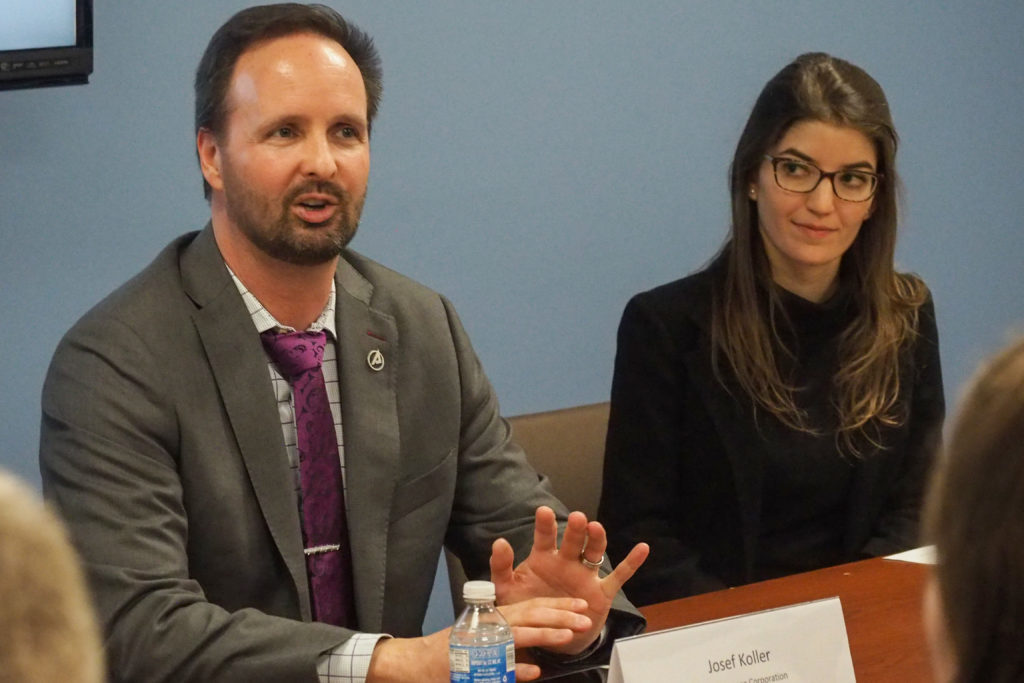Diplomats and experts discussed issues in space governance at the Elliott School of International Affairs Tuesday.
Panelists hailing from several different countries discussed their nations’ unique issues regarding space policy at the event, like controlling space traffic and creating well-designed regulations. About 30 people attended the event, which was hosted by the Space Policy Institute.
Josef Koller, the systems director for the Center for Space Policy and Strategy at the Aerospace Corporation, said he primarily works with issues like space traffic management, flight safety and space debris, adding that the lack of rules leads many to refer to space as the “Wild West.”
Koller said countries around the world should join together and create a common set of rules to govern space, which he said would lead to positive contributions to both the U.S. economy and the world’s.
“Space is still that chaotic-like traffic street in 1906,” he said. “It’s the Wild West, but if we start developing better standards and better rules of the road, I think space can grow tremendously.”
Gaston Stronck, the ambassador of Luxembourg to the United States, said his country has been active in space since its first satellite launch in 1988. He added that Luxembourg is committed to promoting peaceful exploration and the sustainability of space resources that positively affect other nations.
“We had the political courage to advocate for things that were not self-evident in Luxembourg,” Stronck said.
Masami Onoda, the director of the Japanese Aerospace Exploration Agency’s D.C. office, said her agency faced unique issues early on because of Japan’s official policy of pacifism, which prevented agency staff from discussing certain issues.
“When I joined JAXA, I wasn’t able to talk about industry or defense,” she said. “We were bound by a resolution by the Parliament of Japan in 1969, who decided that Japanese space activity should be solely for peaceful and non-aggressive purposes, which means it should be used for non-military purposes.”
She said Japan’s space agency is on a trajectory to become as popular as NASA in spite of the restrictions the agency faced initially from Japan’s legislature.
“As time went on, we catched up in technology and we developed our indigenous launchers and satellites,” Onoda said. “Now that Japan has caught up, we wanted to start our own robust space industry and we want to be an equal partner with the United States and other international partners.”
Lauro Beltrao, a science and technology attaché at the Embassy of Brazil, said the growth of Brazil’s Air Force and space industry occurred almost simultaneously in the 1940s. He added that Brazil was the only Latin American nation that actively developed both at the time.
Beltrao said the creation of Brazil’s space agency under the guise of the military limited its development initially. Brazilian officials created the National Institute for Space and Research in 1971 and developed the first civil space agency in 1994, he said.
“The importance of these dates is to give you some sense about how behind we were compared to other countries such as the United States,” Beltrao said.





